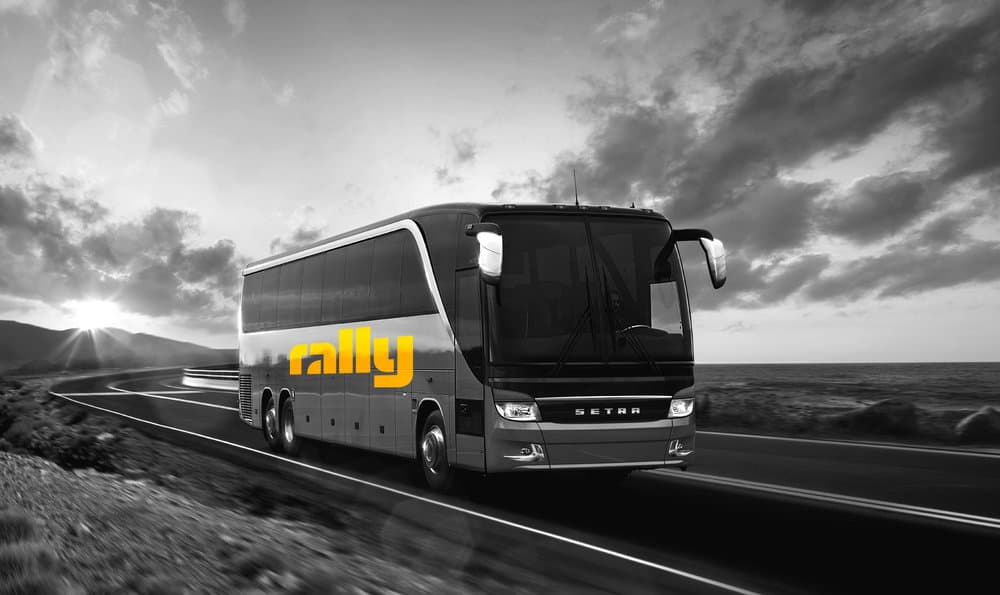
In the Mobility as a Service (MaaS) sector, an inordinate amount of limelight has fallen on the cab-sharing market, made famous by the likes of Uberpools and Lyft Lines, pushing other forms of mass mobility solutions under the rug. Rally, a MaaS startup from NYC, has been turning heads through a combination of an attractive business model and innovative marketing techniques to shed light on the little-noticed bus ride-sharing market.
Numaan Akram, the CEO of Rally, considers his solution to be powered by the support of people, with the startup focusing on situations where community mobilization happens in large numbers – like concerts, sporting events, and festivals.
Akram explained that the bus market cuts parallel with the trucking industry, as both the markets suffer from excessive fragmentation and have issues with unused capacity. “In the U.S., 700 million passenger trips are happening in the industry, with almost 4000 bus operators out there. Most of them are at 50% utilization,” he said. “Each company on average only own ten buses each, and they’re underutilized as they don’t have much technology or a brand.”
Rally’s way of connecting the dots is by building a multi-faceted marketplace, which Akram explained, posed challenges from both ends of the stakeholder spectrum. “On the demand side, the primary challenges was about raising awareness and letting more people know this is an option. We’ve done that with great SEO, so if you now search for a bus to a concert out there in the U.S., you will find Rally,” he said.
The startup is partnering with big players like the NFL and NASCAR to help pique user interest, and in Akram’s words, “letting people know that taking a bus to an event is an option.” On the supply side, though Rally has built a platform wherein bus companies could come and participate, the technological process of integration has been an issue that the startup is grappling with.
To make transitions seamless, the company is working closely with the industry – be it with OEMs like Daimler or bus operators. The company had initially raised pre-seed funding of $2 million through TechStars, and has now raised $5 million in seed funding from Daimler Buses, with celebrity investors like World Champion F1 driver Nico Rosberg and NHL player Kevin Westgarth in tow.
When asked about how the startup was prioritizing the channeling of resources, Akram noted that it was about building the product, as the proposition was challenging and was cutting into the current taxi ride-sharing market. “There is always going to be a technology bill, but it is also about marketing. We need to raise awareness, and we’ll be out there scaling up partnerships,” he said. “This year, we had our first NFL team partnership with Buffalo Bills, and have also partnered with seven different NASCAR track Speedway motorsports.”
Rally is now partnering with Daimler Buses on “Project Schwungrad” or the Flywheel – an effort of developing both hardware and software for the on-demand bus market. “Daimler loves what we are doing – creating new demand for buses. We are creating a market so that more people can have access to buses, and eventually, it may help sell more buses,” said Akram.
Right now, Daimler is putting its weight behind innovation in the bus-sharing market, but on the long-term, Akram believed that Rally would be collaborating on projects that envision the future of mass mobility. “We have talked about all the changes in private mobility and how technology has been applied to taxis and rental cars. In the future, it might be about how high occupancy vehicles would look, and how community mobility would be like,” said Akram. “These are projects we put under the Flywheel, but it is a long-term vision.”











